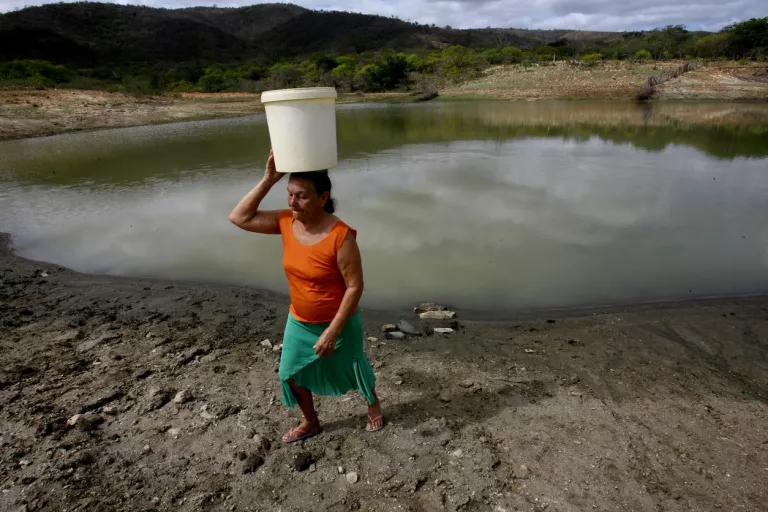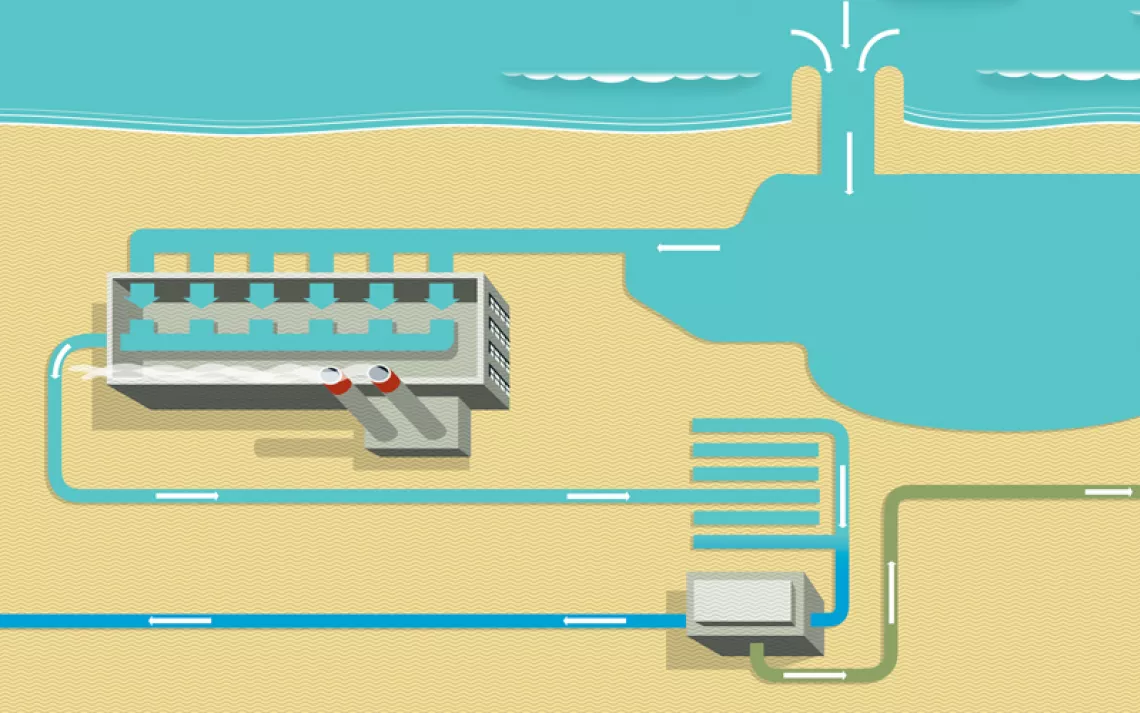Who Owns Water?
How a corporation got the rights to life’s most basic necessity

In the poorest neighborhoods of Cochabamba, Bolivia, there is no indoor plumbing. Residents draw from communally owned wells, while their rural counterparts save rainwater in tanks for the dry months. Two years ago, gathering water in these traditional ways became illegal without a permit. Under pressure from the World Bank, the Bolivian government privatized the water system of Cochabamba--a city of 600,000 people--and the outlying countryside. This move gave sole distribution rights to Aguas del Tunari, a consortium led by a subsidiary of San Francisco–based engineering and construction giant Bechtel Enterprises.
Cochabamba's water system had been badly mismanaged in the past, but activists see another motivation behind the sale, which followed the transfer of the national airline, railroad system, and electric utilities to corporate hands. “The government privatized water to benefit the interests of multinationals,” says Gabriel Herbas, an economist and member of the Coalition in Defense of Water and Life (known locally as La Coordinadora), a broad-based group of Bolivians fighting for equitable water-delivery systems.
Corporations see opportunity in selling basic services. More than one billion people lack access to fresh drinking water, according to a 1999 United Nations report, and burgeoning urban populations in poor countries are overwhelming the distribution systems. For developing nations like Bolivia, this is a calamity in the making. For corporations like Bechtel, it’s a potential financial bonanza.
Once Aguas del Tunari took over Cochabamba’s water system in November 1999, rates soared by as much as 300 percent, according to Jim Shultz, the Bolivia-based director of the Democracy Center. (Aguas maintains that the increases were no more than 35 percent.) For residents with a monthly minimum wage of less than $100, the $20 water bills were unbearable. After a series of protests led by La Coordinadora--one of which shut down Cochabamba for a week--the Bolivian government canceled the Aguas del Tunari deal in April 2000, returning the water to local control.
“The coalition tried talking to politicians and going to the media, but it wasn’t until we took to the streets by the thousands that the government began paying attention,” Herbas says. (International groups took notice too: This April, Oscar Olivera, the leader of La Coordinadora, won the prestigious Goldman Environmental Prize, which honors grassroots activists around the world.)
Under the new public ownership, water distribution in Cochabamba has improved by about 10 percent (it previously reached only 55 percent of the population), and once-common shortages have largely become a thing of the past. But further progress has been hampered by the huge debt incurred years before by corrupt government managers, which led the World Bank to promote privatization in the first place. (To sweeten the deal, Aguas del Tunari had to shoulder only a portion of the debt, but the public owners were offered no such perks.)
Handing waterworks over to corporations has proven dangerous in more-industrialized countries too. After the Thatcher administration privatized the United Kingdom's system in 1989, prices skyrocketed, water quality decreased, jobs were lost, and the number of households disconnected for nonpayment tripled in the first five years. "Water distribution based on the profit motive means that not everyone gets served," says Jamie Dunn of Canada's Blue Planet Project, which hosted the first global citizens' summit on water in Vancouver in July.
Since the World Bank began encouraging privatization of water in 1993, it has been pushing developing countries to sell off their publicly owned systems, often by making its loans contingent on the transfer. In Bolivia, the Bank favored an alternative privatization option, but opposed any public aid to consumers. In an April 2000 press conference, World Bank president James D. Wolfensohn defended this policy, saying, “The biggest problem with water is the waste of water through lack of charging.” The European Union has also suggested that all World Trade Organization member countries should open up their water systems to competition and foreign ownership.
The terms of such ownership are usually very favorable to corporations: Aguas del Tunari’s $200 million contract, for example, guaranteed an 18 percent average annual return. When a privatized water-treatment facility in industrial Hamilton, Ontario, spilled 180 million liters of raw sewage into Lake Ontario in 1996, the contract left the city responsible for cleaning up the mess. “The really insidious thing about these public-private partnerships is that the companies make a profit without having to assume any of the risk of ownership,” says Dunn. “Once it becomes impossible to make a profit, they leave--and leave the problems.”
 The Magazine of The Sierra Club
The Magazine of The Sierra Club



